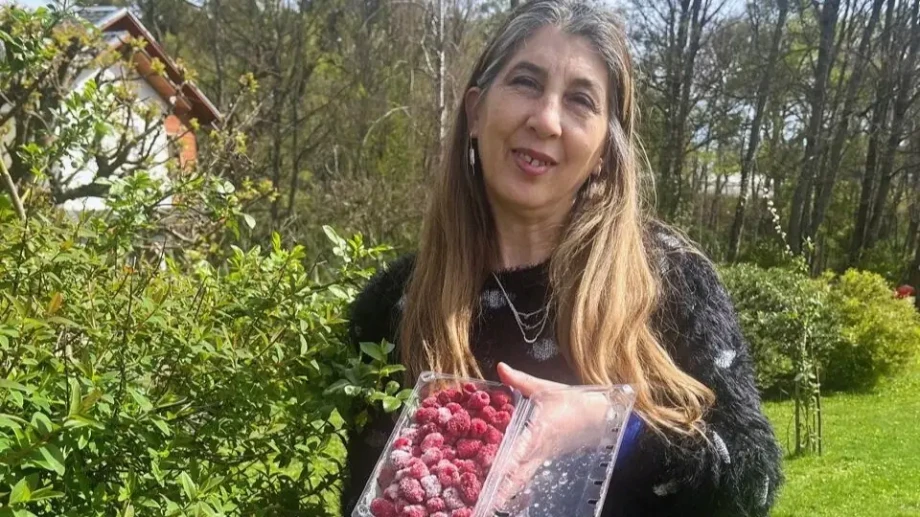Yeny Marlene Aniñir Campos never envisioned herself as a raspberry farmer. Living in Chile’s Araucanía region, one of the country's poorest in terms of GDP per capita, she was simply looking for a way to support her family. As an indigenous Mapuche woman, wife, mother of three, and primary caregiver for her aging father and uncle, Yeny was deeply rooted in a traditional lifestyle centered around cereal crops and cattle grazing in the Maquehue sector of Padre las Casas.
When she learned that nearby farmers were earning good money from growing berries on small plots, she saw a new opportunity. Though it took her over a year to convince her family to change their crop strategy, she was determined. The land was available, and so was her will to transform their future.
Starting the journey
In 2016, Yeny began her journey into raspberry farming by planting 1,500 seedlings of a local variety known as ‘Nicked’ on a small piece of land given to her by her father. With no irrigation system, she watered the plants manually, carrying buckets by hand with the help of her sons. The first season’s earnings amounted to 600,000 pesos (circa 630 EUR) — modest, but more than she had ever made with cereal crops.
Encouraged by this result, she turned to the Chilean Agricultural Development Institute (INDAP) for support. Through the Indigenous Territorial Development Program (PDTI), she gained access to small grants and training in irrigation, eventually offering her plot as a demonstration site for fellow farmers in the area.
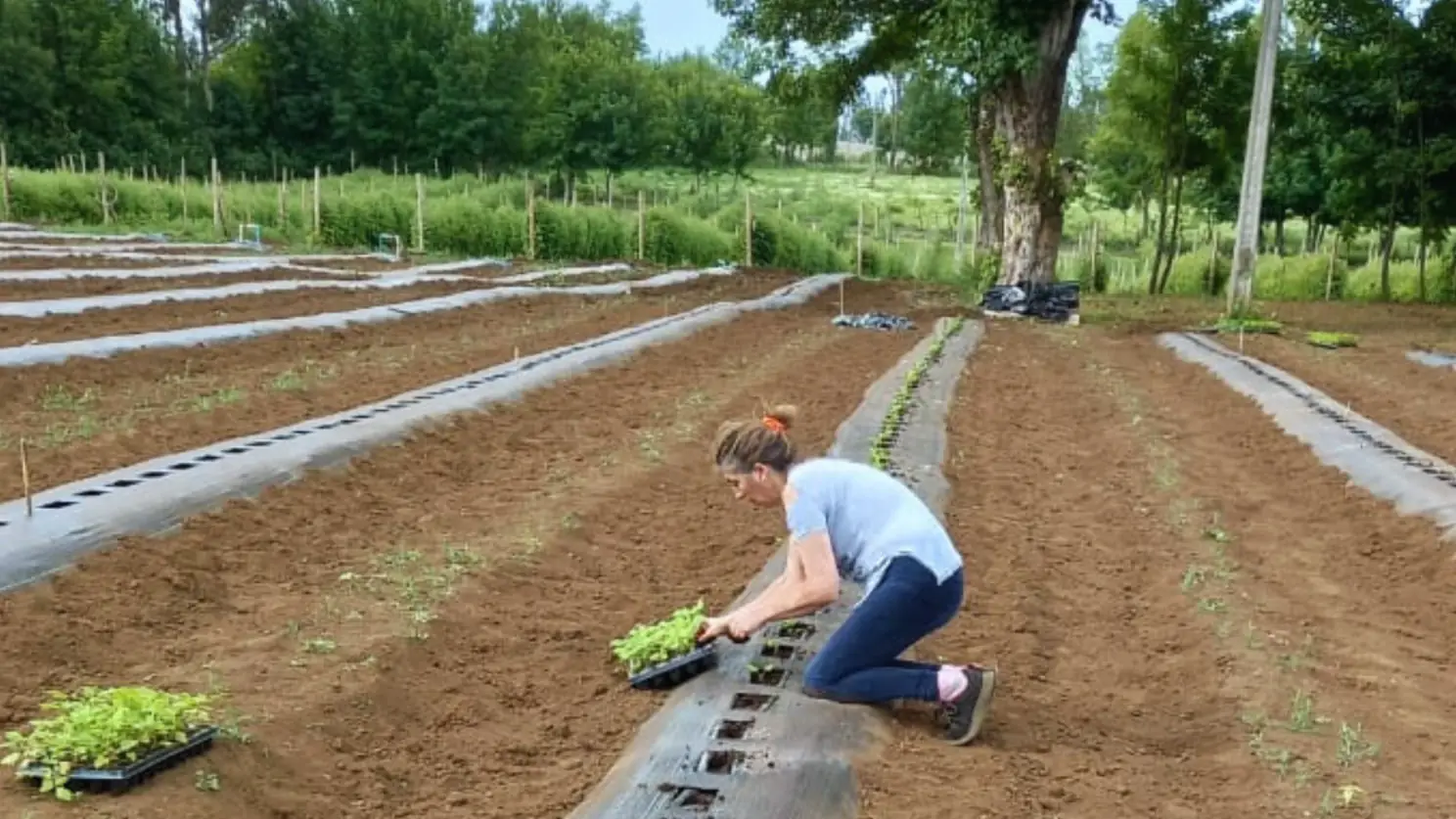
Innovation and growth
One of the key turning points in her journey came with the installation of a proper irrigation system: a 20x20x5-meter water reservoir that significantly increased her productivity. By her third year of cultivation, Yeny’s income had grown to 7 million pesos (circa 7,350 EUR) — more than ten times her initial earnings.
Around this time, the Chilean government introduced new raspberry varieties developed by Professor Marina Gambardella of the Pontificia Universidad Católica de Chile. These “Santa” varieties — Santa Catalina, Santa Teresa, and Santa Clara — were protected cultivars bred to produce fruit for up to six months and remain fresh for three days, vastly outperforming older varieties.
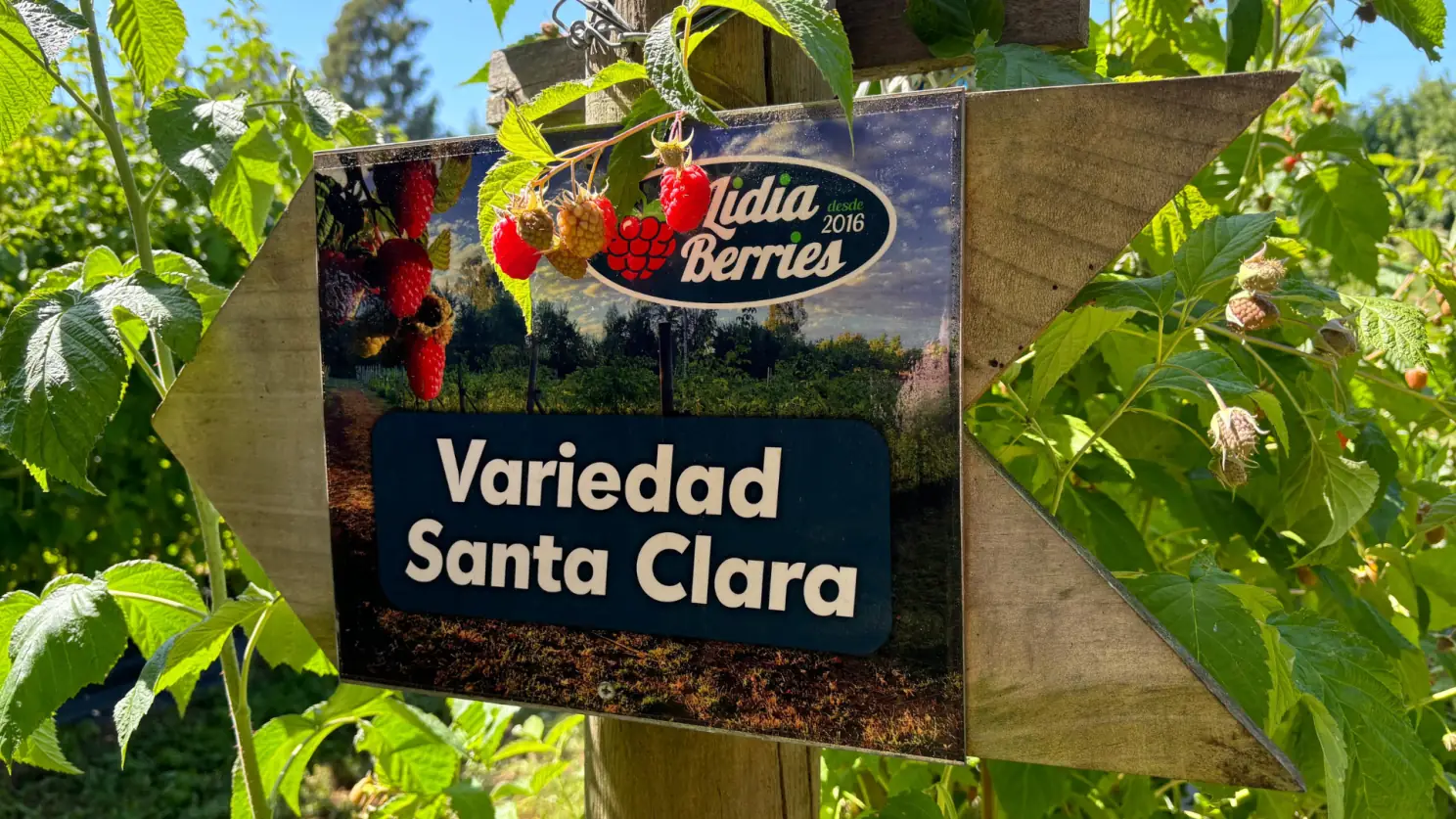
Building a business
In 2018, Yeny decided to invest in 2,500 plants of the Santa Clara variety. She studied the plant’s characteristics closely and even had the opportunity to meet Professor Gambardella in person. The superior sweetness, resilience, and adaptability of Santa Clara raspberries convinced her that this was the path forward.
That same year, she founded her own company, Lidia Berries, named in honor of a family member. Her business grew rapidly, and she expanded her operation from just a quarter-hectare to 2.5 hectares. She now manages a seasonal workforce of up to 60 women, many of whom are also mothers and caregivers, working flexible hours that accommodate their family responsibilities.
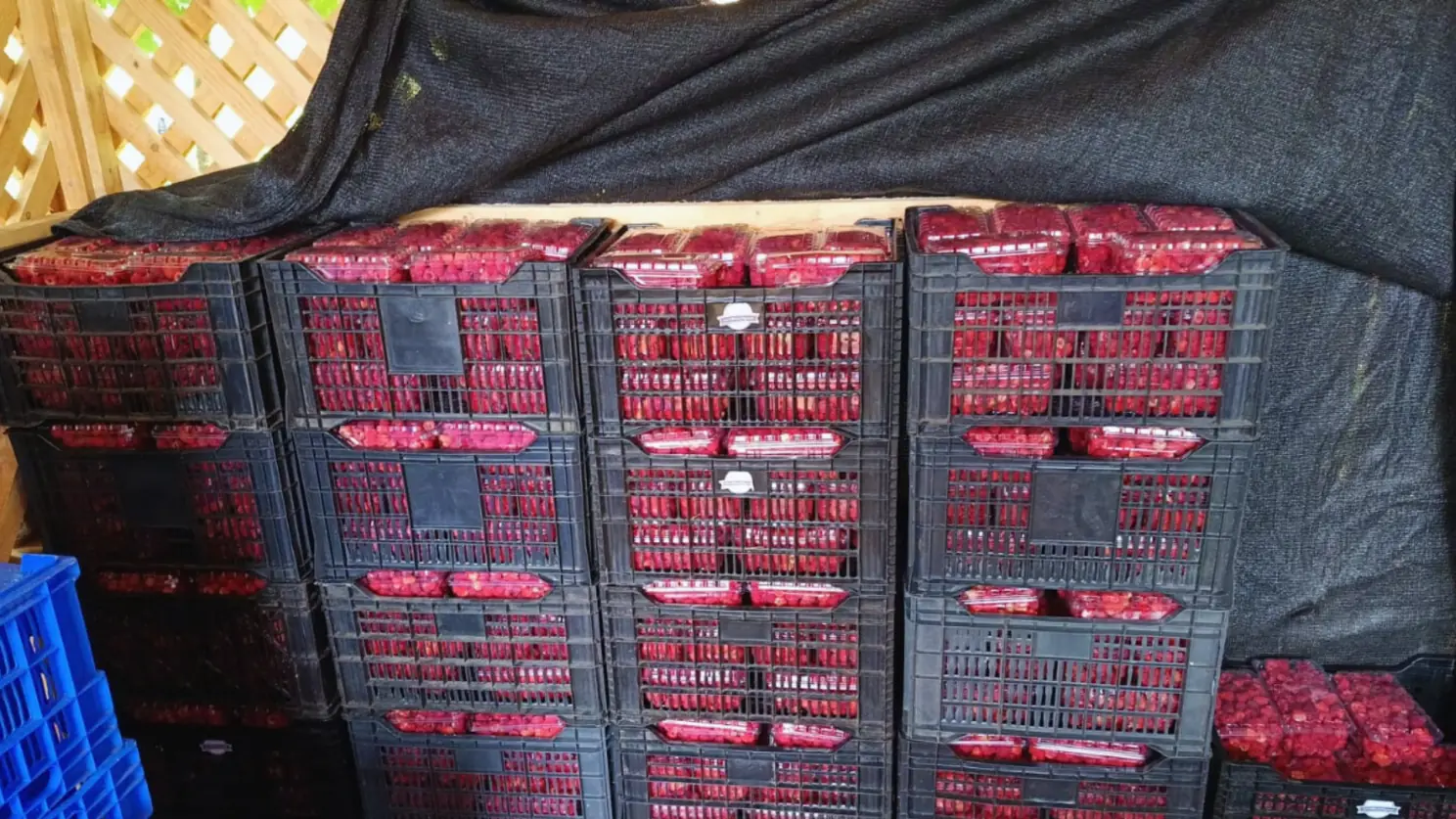
Championing ethics and innovation
Yeny credits much of her success to Professor Gambardella’s work, describing her as a “goddess” whose varieties “saved the future” of her children. She has become an outspoken advocate for the ethical use of plant material, encouraging growers to buy from certified nurseries and to respect the intellectual property of breeders by paying the appropriate royalties.
In her view, the decade of research and development behind each variety deserves recognition and financial support — especially when it enables small-scale growers, particularly women, to build economic independence without leaving their communities.
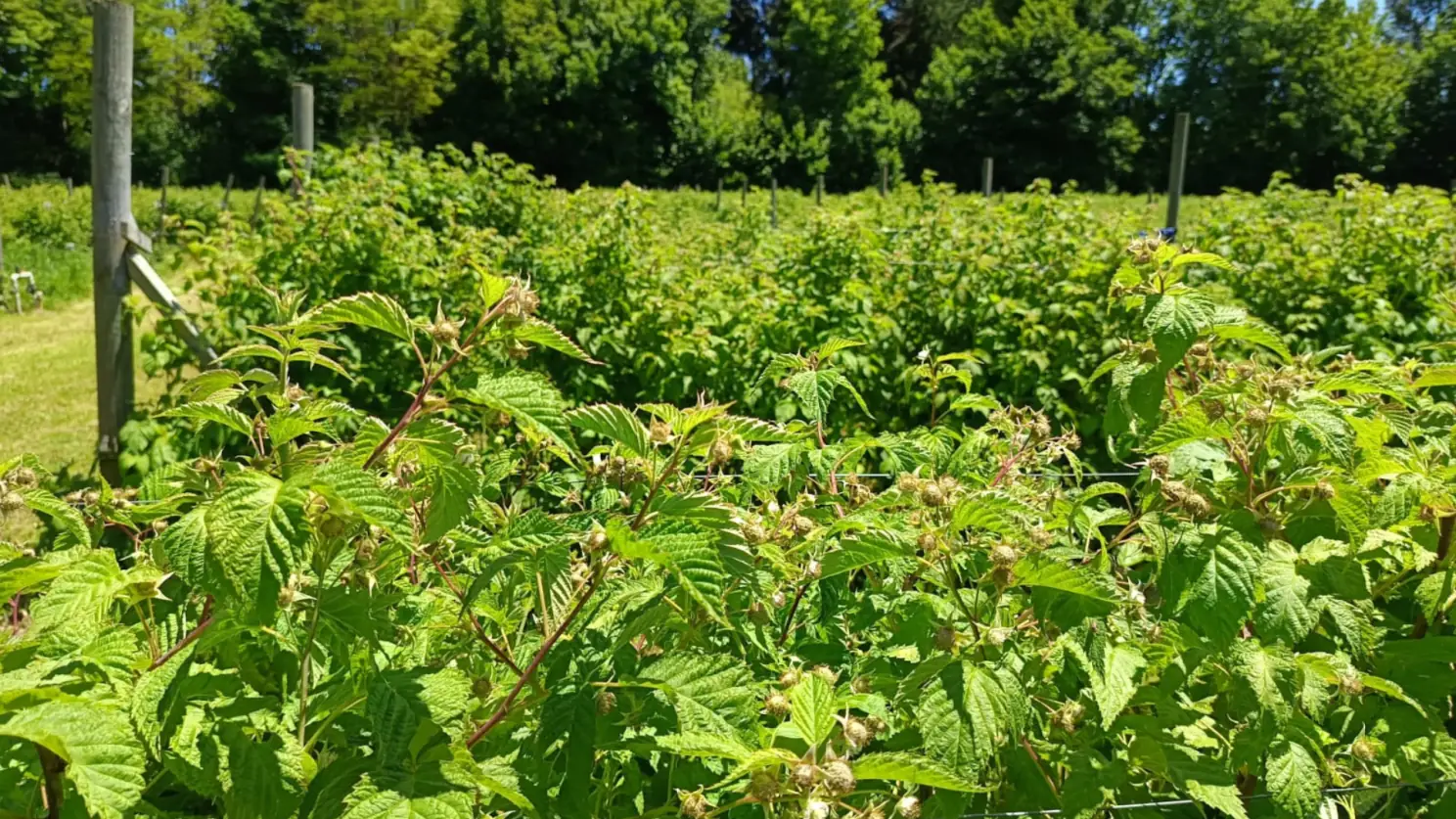
A symbol of transformation
Yeny’s story is emblematic of a broader transformation in Chile’s raspberry sector. According to Manuel Toro Ugalde, head of Chile’s Registry of Protected Varieties, the country has registered over 1,000 protected cultivars, including 31 raspberry varieties — seven of which are Chilean-born “Santas.”
Chile is now among the top global raspberry producers, following Serbia and Poland. These new high-performing cultivars have already been exported to Spain, Portugal, Mexico, and Australia, helping small farmers boost both quality and income.
However, challenges remain: climate change, lack of access to information, and limited resources still affect many rural and indigenous farmers. Even so, Yeny’s thriving raspberry field stands as a powerful symbol of what is possible when innovation, support, and determination come together — not just for one woman, but for an entire community.
Text and images source: linkedin.com





